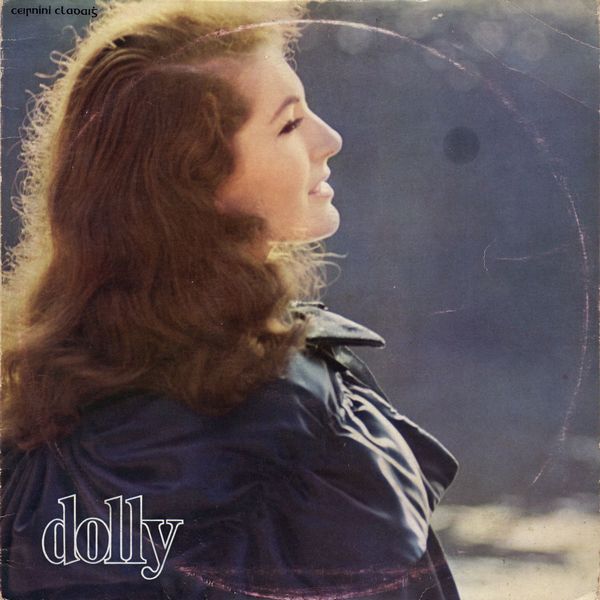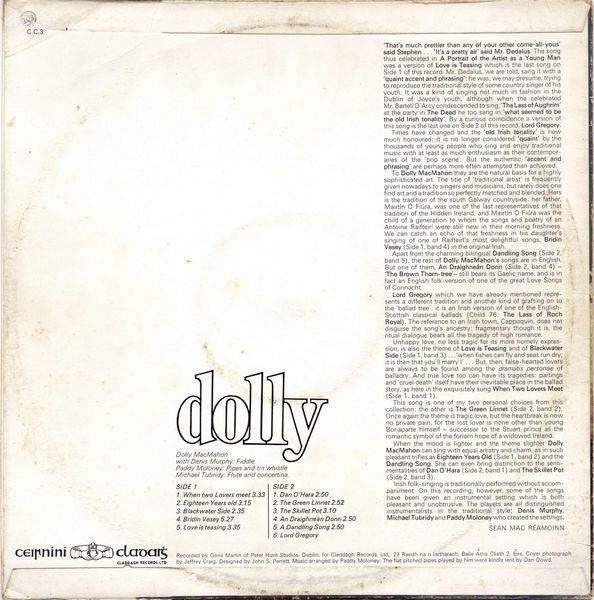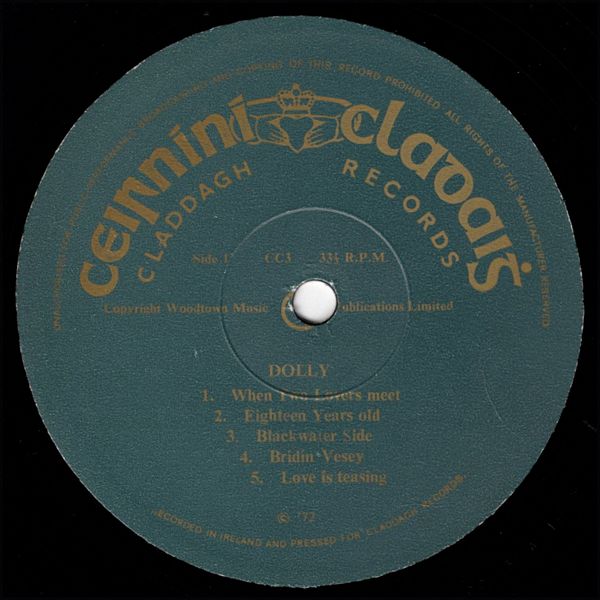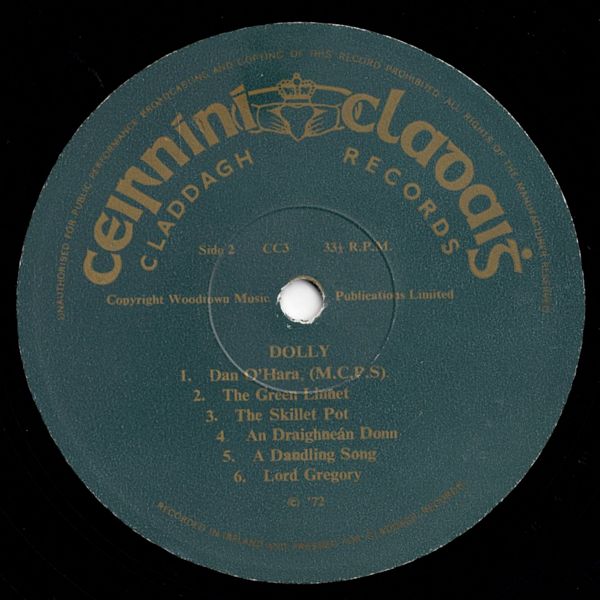
 |


 |
Sleeve Notes
'That's much prettier than any of your other come-all-yous' said Stephen … 'It's a pretty air' said Mr. Dedalus. The song thus celebrated in A Portrait of the Artist as a Young Man was a version of Love is Teasing which is the last song on Side 1 of this record. Mr. Dedalus, we are told, sang it with a 'quaint accent and phrasing': he was, we may presume, trying to reproduce the traditional style of some country singer of his youth. It was a kind of singing not much in fashion in the Dublin of Joyce's youth, although when the celebrated Mr. Bartell D'Arcy condescended to sing. 'The Lass of Aughrim' at the party in The Dead he too sang in 'what seemed to be the old Irish tonality'. By a curious coincidence a version of this song is the last one on Side 2 of this record. Lord Gregory.
Times have changed and the 'old Irish tonality' is now much honoured: it is no longer considered 'quaint' by the thousands of young people who sing and enjoy traditional music with at least as much enthusiasm as their contemporaries of the 'pop scene'. But the authentic 'accent and phrasing' are perhaps more often attempted than achieved.
To Dolly MacMahon they are the natural basis for a highly sophisticated art. The title of 'traditional artist' is frequently given nowadays to singers and musicians, but rarely does one find art and a tradition so perfectly matched and blended. Hers is the tradition of the south Galway countryside: her father, Mairtín Ó Fiúra, was one of the last representatives of that tradition of the Hidden Ireland, and Mairtín Ó Fiúra was the child of a generation to whom the songs and poetry of an Antoine Raifteirí were still new in their morning freshness. We can catch an echo of that freshness in his daughter's singing of one of Raifteirí's most delightful songs, Brídín Vesey (Side 1, band 4) in the original Irish.
Apart from the charming bilingual Dandling Song (Side 2, band 5). the rest of Dolly MacMahon's songs are in English. But one of them, An Draighneán Donn (Side 2, band 4) — 'The Brown Thorn-tree' — still bears its Gaelic name, and is in fact an English folk-version of one of the great Love Songs of Connacht.
Lord Gregory which we have already mentioned represents a different tradition and another kind of grafting on to the 'ballad tree': it is an Irish version of one of the English-Scottish classical ballads (Child 76: The Lass of Roch Royal). The reference to an Irish town, Cappoquin, does not disguise the song's ancestry: fragmentary though it is, the ritual dialogue bears all the tragedy of high romance.
Unhappy love, no less tragic for its more homely expression, is also the theme of Love is Teasing and of Blackwater Side (Side 1, band 3) … 'when fishes can fly and seas run dry, it is then that you'll marry I' … But, then, false-hearted lovers are always to be found among the dramatis personae of balladry. And true love too can have its tragedies: partings and 'cruel death' itself have their inevitable place in the ballad story, as here in the exquisitely sung When Two Lovers Meet (Side 1, band 1).
This song is one of my two personal choices from this collection: the other is The Green Linnet (Side 2, band 2). Once again the theme is tragic love, but the heartbreak is now no private pain, for the lost lover is none other than young Bonaparte himself — successor to the Stuart prince as the romantic symbol of the forlorn hope of a widowed Ireland.
When the mood is lighter and the theme slighter Dolly MacMahon can sing with equal artistry and charm, as in such pleasant trifles as Eighteen Years Old (Side 1, band 2) and the Dandling Song. She can even bring distinction to the sentimentalities of Dan O'Hara (Side 2, band 1) and The Skillet Pot (Side 2, band 3).
Irish folk-singing is traditionally performed without accompaniment. On this recording, however, some of the songs have been given an instrumental setting which is both pleasant and unobtrusive. The players are all distinguished instrumentalists in the traditional style: Denis Murphy, Michael Tubridy and Paddy Moloney who created the settings.
Seán Mac Réamoinn